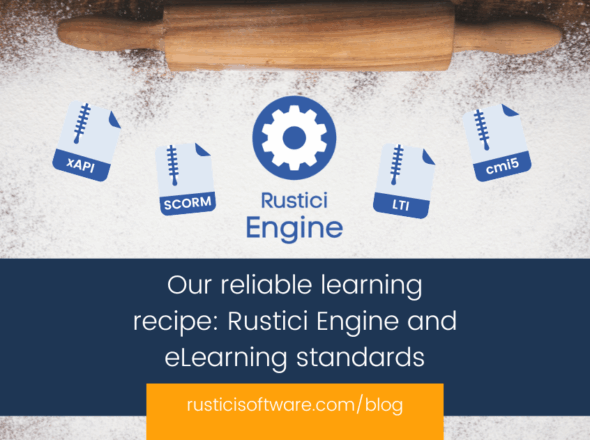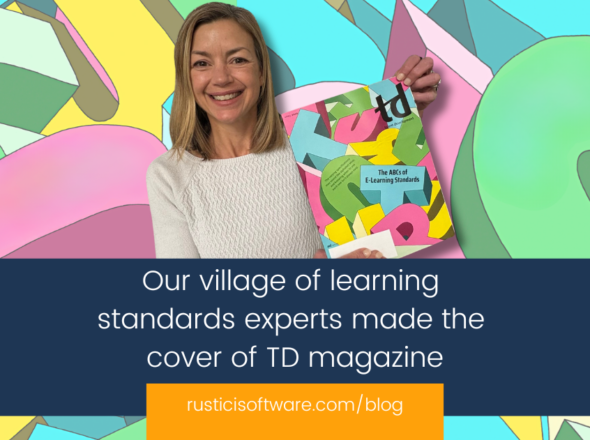The US Department of Labor just announced their solicitation for grant applications (SGA) and they called it this: “Employment and Training Administration Notice of Availability of Funds and Solicitation for Grant Applications for Trade Adjustment Assistance Community College and Career Training Grants Program“. Whoa.
I’m no political pundit, so here’s my short version: The federal government has set up a large grant program that includes the creation of Open Educational Resources, and they’ve required (on page 8 ) that the output conform with SCORM 2004.
There’s been a lot of “reaction” to the inclusion of SCORM, and by reaction, I mean many people are pretty angry about its inclusion. Most of that angst, though, originates from Rob Abel’s post on the IMS forums.
I will say this very plainly and directly: Rob’s post contains many inaccuracies and convenient explanations of the sort that you would see in a political campaign. While it is tempting to break down Rob’s post on a line by line basis, my ever-so-brief analysis of political campaigns (OK, I watched The West Wing) indicates that helps no one. I’ll limit my comments to a few:
- SCORM is not based on “outdated technology” as Rob claims repeatedly. The fundamental technologies employed by SCORM are Javascript and XML, and both are absolutely core to today’s web.
- “SCORM does not provide reliable interoperability or reuse.” Our SCORM Engine alone supports millions of learners and their use of interoperable content every year. Millions.
- “SCORM has no concept of or support for assessment.” False again. Please see the SCORM books for details on cmi.interactions, which are used widely for the reporting of learner assessment.
Lest you think I’m one sided here, there are truths in Rob’s post as well. SCORM is not well suited to “cohort-based” educational courses at this point, because it specifically governs single learner/host system communication. SCORM also elects (intentionally) to remain silent on countless subjects such as wider IT infrastructure and security.
Setting aside the technical errors in Rob’s post, my primary issue is with his misplaced vitriol. Rob has a vested interest in this debate. [Note: You could certainly argue that I do as well, given our domain name, but it’s worth noting that we have equal support for AICC, and IMS CC has come up as a potential addition for us. We are definitively not the standards body.] As the leader of IMS, Rob has plenty of reasons to espouse the virtues of the standards they are creating. Further, I think Rob would be justified in complaining about the exclusion of IMS CC as a potential approach to reuse as part of the grant program. Michael Feldstein pointed this out in his balanced perspective on the issue.
SCORM and IMS Common Cartridge (the other main contender for a standard educational content interchange format) have substantially different affordances that are appropriate for substantially different use cases.
Michael Feldstein, in OER and Standards
My challenge to Rob and others in the conversation would be this. Argue the things that merit argument and take far greater care when you lambast other solutions.
- Does IMS CC provide some affordances that might be of use for a program such as this and should it be considered as a potential solution? I think it does.
- Should a directive such as this specify a single standard for clarity and simplicity? Or should other standards be options as well? I have no idea.
- Should SCORM, in its current state, be the only eLearning standard for the next 30 years? No way. Check out Project Tin Can and why SCORM needs to evolve, and tell us how it should evolve.
Ultimately, what’s the point here?
Elearning standards have a fundamental purpose: to remove the friction that separates learners from what they need to learn.
Rob has succeeded in inciting more than a few folks to criticize SCORM, when few of them have the background to determine the accuracy and reasonableness of his statements. A vitriolic argument like this does nothing but set us back in the goal of helping learners reach the learning they need.
SCORM can absolutely increase the utility of the Open Educational Resources produced by this grant program. IMS CC may well be able to as well. Let’s move this discussion past politically motivated and inaccurate accusations to something that helps people get their learning.


